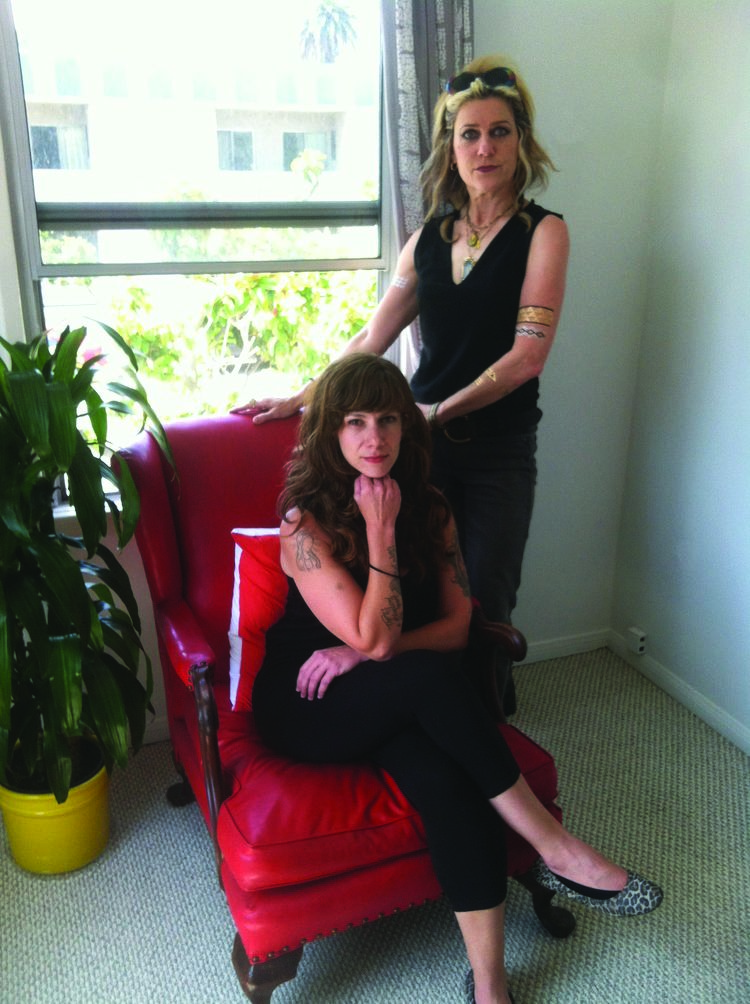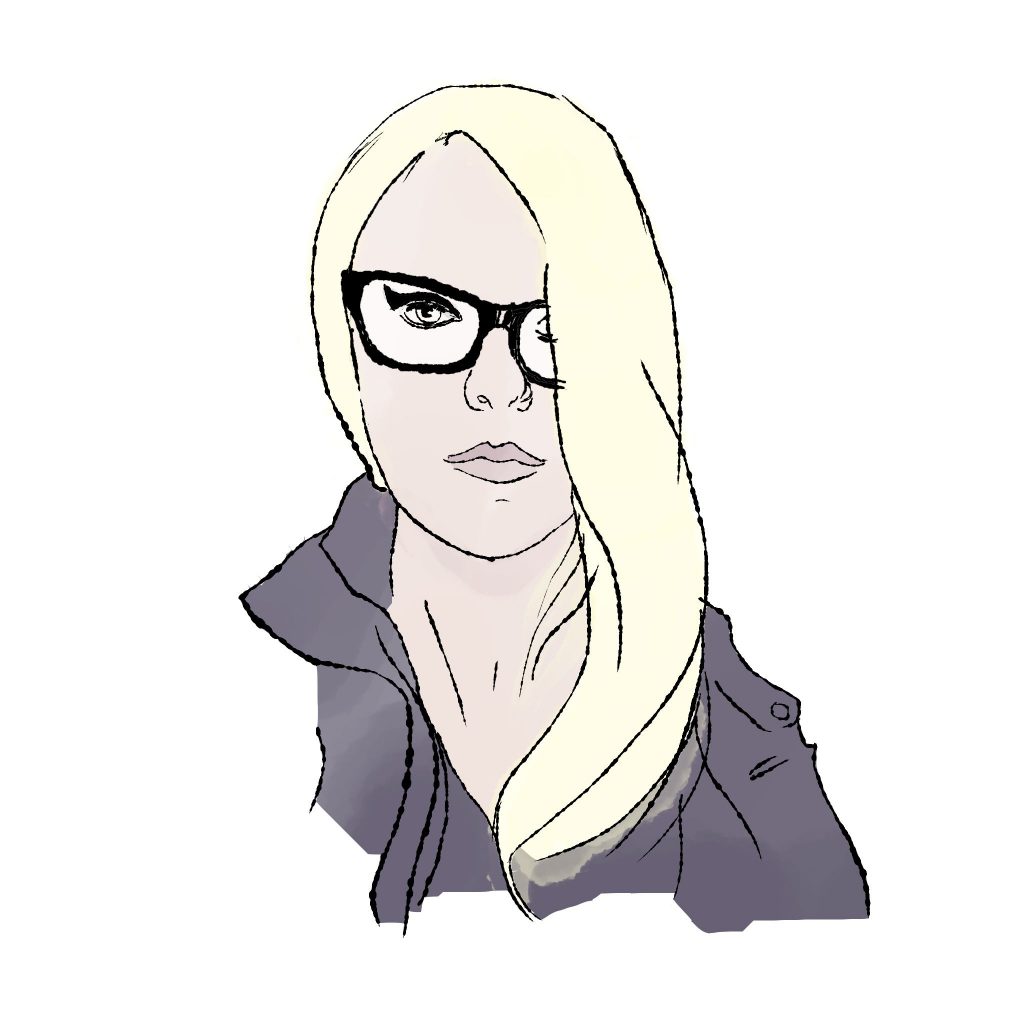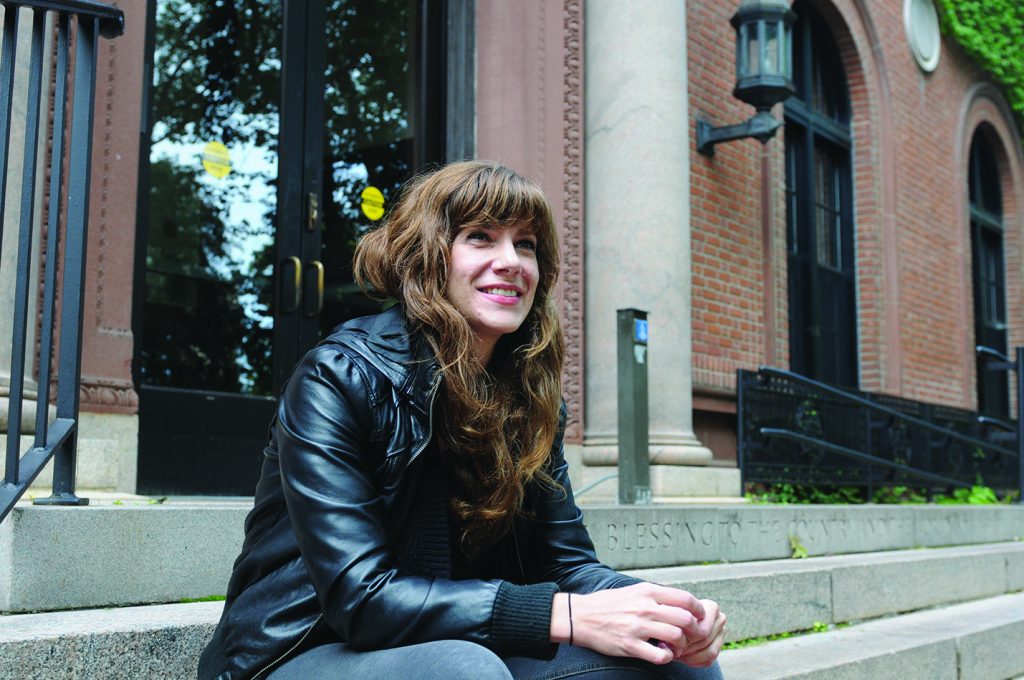Tanya Pearson has been accumulating a continuous list of female musicians for her Women in Rock Oral History Project which she started at Smith College in December 2014. Accompanied by 29 video interviews (so far!) with some of them available on www.womenofrock.org, she has set the bar for having underrepresented female musicians speak their truth and tell their story behind what it’s like to be a female musician in a “Man’s World.”
The interviews are real and the questions stemmed from Pearson’s own wonderment when she was growing up and wanted to learn about her favorite female musicians, but couldn’t find any information on them. The first interviews she landed were with Lydia Lunch, Veruca Salt, JD Samson (Le Tigre), and Julie Cafritz (Pussy Galore). The list just grew from there, including many more local and nationally known female musicians and traveling from as far as California for them.
I may be biased in saying this since I am a huge Hole fan, but the video interview with ex Hole drummer Patty Schemel is my favorite. Schemel recently had her own documentary about her struggles with addiction, being a musician and a woman who was very much a “tomboy.” Pearson’s interview with Schemel is reminiscent of that documentary, with Pearson’s charismatic voice in the background casually asking her questions. I highly recommend going over to the site and checking these videos out. They are documentary-like movies with the majority being about the same length as a feature film.
Since the beginning of this project, Pearson has also put on local shows and events throughout the Pioneer Valley to showcase local talent, all while promoting the project she has devoted herself to. A multi-instrumentalist musician herself, who’s currently the guitarist in That Body, she has been playing with bands since the late ‘90s/early 2000s. Pearson hasn’t played out much lately, due to the work on this project as well as grad school. However, you can check out her band playing Dec. 10 at the Flywheel Arts Collective in Easthampton.
The next event is a two-part-er that involves issues of gender, media, and access to audience. The first part is “Wikipedia vs. Women: A Roundtable Discussion” at Click Workspace in Northampton on Nov. 14 at 6-8 p.m. (Due to press deadline, this article will be published in print after the event, but you can view the video from the discussion on valleyadvocate.com). This idea came to fruition when numerous failed attempts at creating and editing Wikipedia pages focusing on women, trans and nonbinary people in rock music (local and nationally) were coming up.
Pearson put together a tutorial and then started editing and creating pages herself. She created a page for the Women of Rock Oral History Project and started linking her video interviews to the Wikipedia pages, and updated existing pages with information from the interviews. “I received a response from a female editor in response to my Women of Rock Oral History Project page, and she made some helpful suggestions — I fixed the problems and submitted the page,” Pearson said. But the edits were rejected three times, by three different male editors. One had even blocked her after she had questioned him about the changes.
“The thing that infuriated me was that I would address an issue they brought to my attention and they would then bring up some other issue or problem,” Pearson said. One male editor questioned her sources and said the articles cited needed to focus entirely on the project, not provide mere mentions, and include a national news source. The articles she submitted about the Women of Rock Oral History Project were all articles relating to the project, as well as from a national news source. The dude clearly did not read them to find that out.
Another male editor questioned the validity of her interview with the women at Feminist Magazine Radio and cited the word “feminist” as being the reason he assumed it was not reputable. Wow. That same editor then had said that videos were not primary source documents. “I explained that the videos were oral history interviews housed at a major institution (Smith College) and that they would greatly benefit existing Wikipedia pages. He blocked me,” she said.
Pearson assumed it would be difficult to create pages for local musicians, because you need to be able to link artists to reliable source materials. She thought that the more well known musicians in the area and nationally known ones would have plenty of information. But she could barely find anything at all after weeks of hunting the internet.
During an interview with Donita Sparks from L7 a couple years ago, Sparks brought up the Wikipedia conflict. This past summer she had asked Pearson to gather a “Wiki Army” and get people together to edit/update pages. Sparks shares the same anger towards underrepresentation of women on Wikipedia and together, they are trying to plan a course of action. Well ladies, color me rage, cause I’m right there with ya.
A Google search for just about anything will present a Wiki link on the top of the search results, IF there happens to be a Wiki page for it. It’s an open forum site but there are still gatekeepers who grant access and make the rules. But if these gatekeepers make assumptions and rules based on their own beliefs, instead of representing freedom of speech and other’s interests … what’s the point?
“I also looked into how Wikipedia defines “notable” sources, and how excluding certain sources undoubtedly contributes to the gender discrepancy that Wikipedia is well aware of (there is a page dedicated to its gender bias),” Pearson said. “The root of the problem goes way beyond the surface — rock history is rooted in sexism and this includes rock media and scholarship.”
As long as Wikipedia rejects material drawn from smaller presses and DIY publications, artists and others who operate outside of the mainstream will continue to be excluded. With hope that this series will inspire local musicians and local press to join forces to push their way into broader awareness, I look forward to a more gender neutral Wikipedia. Wishful thinking, I know. But hey, a show girl can hope.
The second part of this event is the live show on Monday, Nov. 20, which will showcase local women, trans, and nonbinary musicians in conjunction with the roundtable discussion, “Wikipedia vs. Women.” That will be my next column, and hopefully that will count as “the notable primary source documents” that Wikipedia requires. Some of the acts include Old Flame, Hot Dirt, Lexi Weege, The Liberated Waffles and many more. The event is free and open to the public at Northampton’s The Parlor Room from 6-10 p.m. See ya there!
Stay tuned for the review of this show in the next Valley Show Girl coming at the end of the month.
Jennifer Levesque can be reached at jlevesque@valleyadvocate.com.





